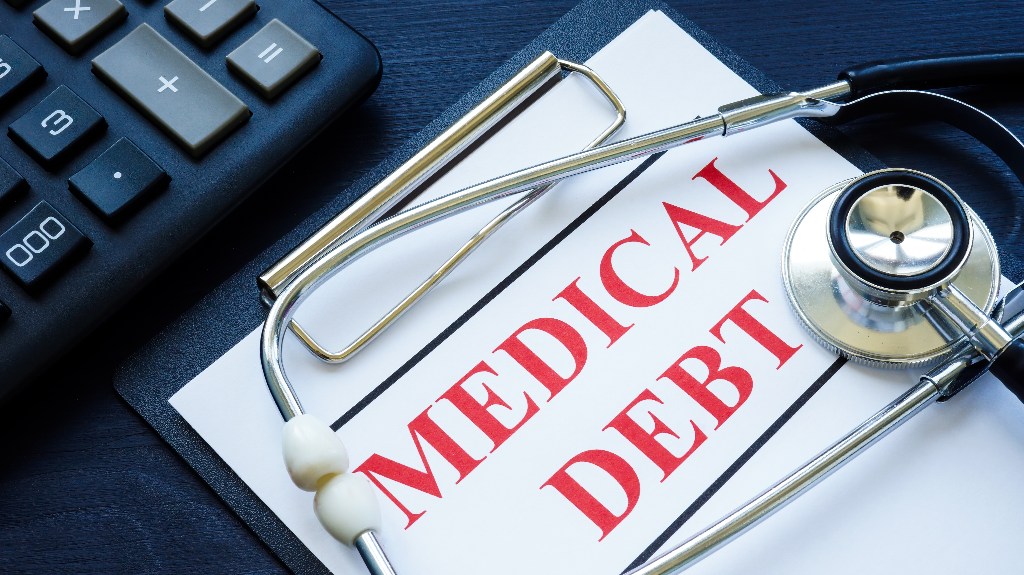
Facing overwhelming medical debt can be like being caught in a relentless storm. You deal with the stress of illness or injury, and then bills start piling up – each one is a reminder of a financial burden that seems impossible to overcome. You are not alone. Medical expenses are a major cause of financial difficulty and bankruptcy in the United States.
At Duncan Bankruptcy Law, we understand how overwhelming and stressful this situation can be. We are here to help you navigate through the bankruptcy process with compassion and expertise. We will guide you through every step, exploring your options for financial freedom.
How Medical Debt Leads to Bankruptcy
Unlike credit card debt or personal loans, medical bills often arise unexpectedly. A serious accident, chronic illness, or even a routine medical procedure with billing complications can lead to tens of thousands of unpaid bills. Even with health insurance coverage, high deductibles, copayments, and out-of-network costs can quickly become overwhelming.
When medical providers send unpaid bills to collections, your credit score may suffer and wage garnishment or lawsuits may follow. Under Georgia law, creditors, including hospitals and collection agencies, can sue to recover debts. If they obtain a judgment, they may garnish up to 25% of your disposable earnings, subject to federal limits under the Consumer Credit Protection Act.
Chapter 7 vs. Chapter 13: Which Is Right for You?
In Georgia, individuals typically file for bankruptcy under Chapter 7 or Chapter 13 of the U.S Bankruptcy Code. Both options can help with medical debt, but in different ways.
Chapter 7 Bankruptcy: Discharge Medical Debt Entirely
Chapter 7 bankruptcy allows eligible individuals to discharge certain types of unsecured debt, such as medical bills, credit card balances, and personal loans. Under Chapter 7, medical debt is considered a non-priority type of unsecured debt and is generally fully discharged, meaning you won’t have to pay it back.
However, eligibility for bankruptcy depends on passing a means test that compares your income to the median income in Georgia. If your income is too high, you may need to file under Chapter 13. Additionally, Chapter 7 involves selling non-exempt assets. However, Georgia’s bankruptcy exemptions, including a generous wildcard exemption, often allow filters to protect essential property like their homes, cars, and personal belongings.
Chapter 13 Bankruptcy: Repay Through a Court-Approved Plan
If you do not qualify for Chapter 7 bankruptcy or wish to retain certain assets, Chapter 13 offers an alternative option. Under this plan, you can propose a 3-5 year repayment plan to pay off a portion of your debt based on your income. Medical debt is typically included in this plan and you only pay back what you can afford, which may be as little as 10% of the total amount.
At the end of a Chapter 13 bankruptcy case, any remaining unsecured debts, including unpaid medical bills, are discharged under 11 U.S.C. § 1328. This section also immediately stops lawsuits, garnishments, and collection calls, through the use of an automatic stay (11 U.S.C. § 362). This gives you time to regain control of your finances and breathe more freely.
Special Considerations for Georgia Residents
Filing for bankruptcy in Georgia involves state-specific regulations that can significantly affect your case. Here are some important points to keep in mind:

- Georgia does not recognize federal bankruptcy exemptions, so you must use the state’s exemptions instead.
- The homestead exemption in Georgia protects up to $21,500 (or $43,000 for married couples) in home equity.
- Medical debt collectors in Georgia are required to comply with the Fair Debt Collection Practices Act (FDCPA). Violations of this act can lead to legal action, even outside of bankruptcy proceedings.
It is crucial to understand these nuances. A mistake in claiming exemptions or failing to complete required credit counseling, as mandated by 11 U.S.C. § 109, can delay or jeopardize your case.
Take the First Step Toward Relief
Medical debt should not determine your financial future. The U.S. bankruptcy system was created to give honest, but unfortunate debtors, a second chance – and medical emergencies certainly fall into this category.
If you’re in Georgia and struggling with medical bills, please don’t wait until it’s too late. Contact Duncan Bankruptcy Law for a confidential consultation today. We can help you get out from under your debt and start moving towards financial independence.


